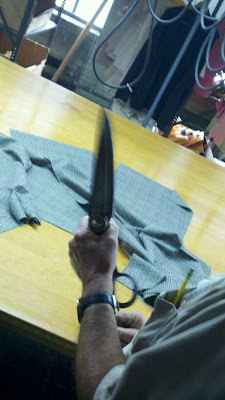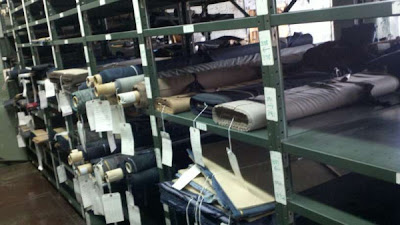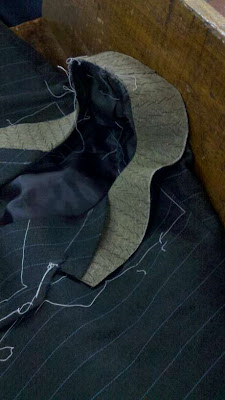
The showroom for those clients who are "grand fathered in." Note those swatch books are filled with the nicest wool, cashmere, silk, and linen sent from the famous Holland and Sherry mill in England.

Here we are in the cutting room where every custom pattern is hand traced and cut, matching pinstripes and plaids.



 They Cataloge every pattern, and every suit has a linen tag with style, fabric, customer, pattern number, so suits can be recreated years after they are originally made.
They Cataloge every pattern, and every suit has a linen tag with style, fabric, customer, pattern number, so suits can be recreated years after they are originally made.


Everything is basted in place so it doesn't shift in the making or pressing process.
 Hand done pad stitching.
Hand done pad stitching. Where the hand button holes are made
Where the hand button holes are made
So amazing to see a factory where the workers time is actually valued and quality products are being made, in the U.S. no less!







































